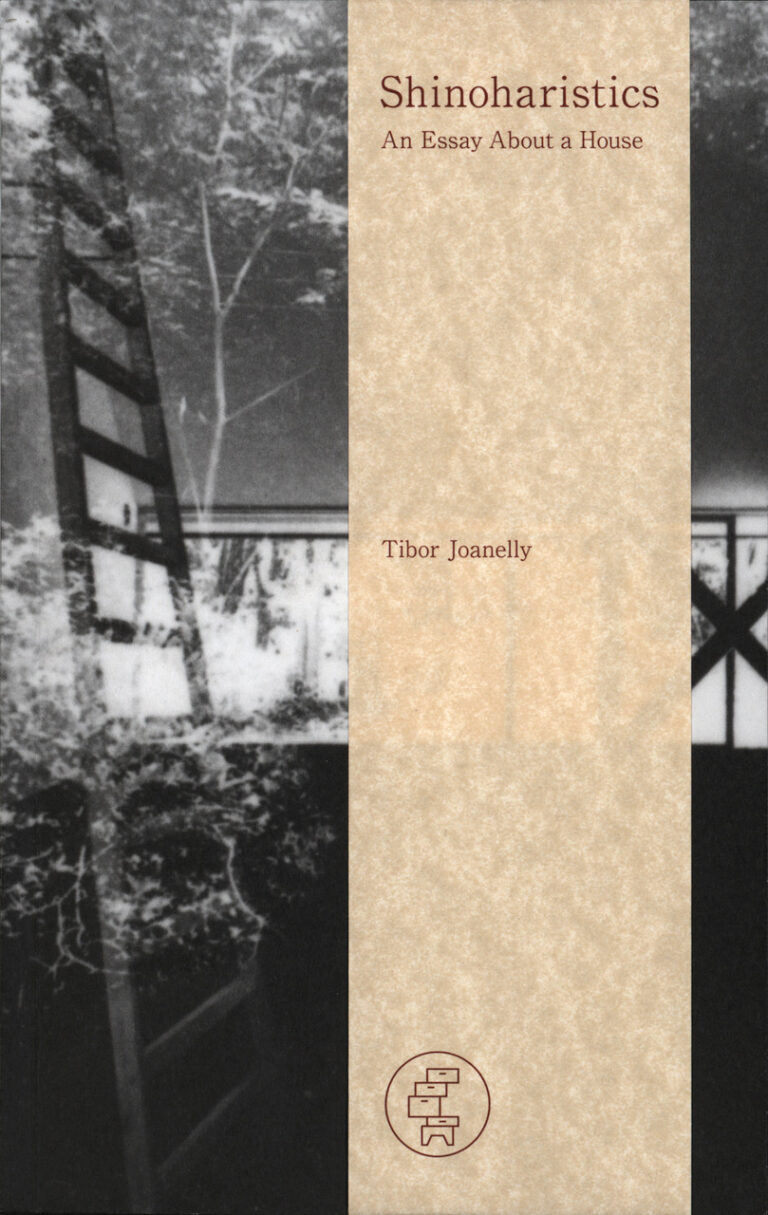
Far from Tokyo, in a holiday resort frequented by artists and intellectuals, the Japanese master architect Kazuo Shinohara constructed an enigma in 1974. Most of the holiday house he designed for the poet Shuntarō Tanikawa consists of a room that is barely usable: A roof spans a patch of sloping terrain like a large tent, enclosing two wooden logs, a ladder, a bench, and the sculpture of a rooster.
The poet soon gave up on using this impractical house. But for the architect, it generated a slew of new ideas and terminology, which he transformed into radically new concepts and spaces in his subsequent essays and designs.
Tibor Joanelly’s treatise deconstructs the terms that appear in Shinohara’s theoretical texts about the poet’s house – terms like “naked reality”, “machine” and “meaning”. Using the tools of contemporary philosophy, Joanelly develops an ontology of architectural space, of metaphor, and of the hidden mechanisms that lie behind all art.